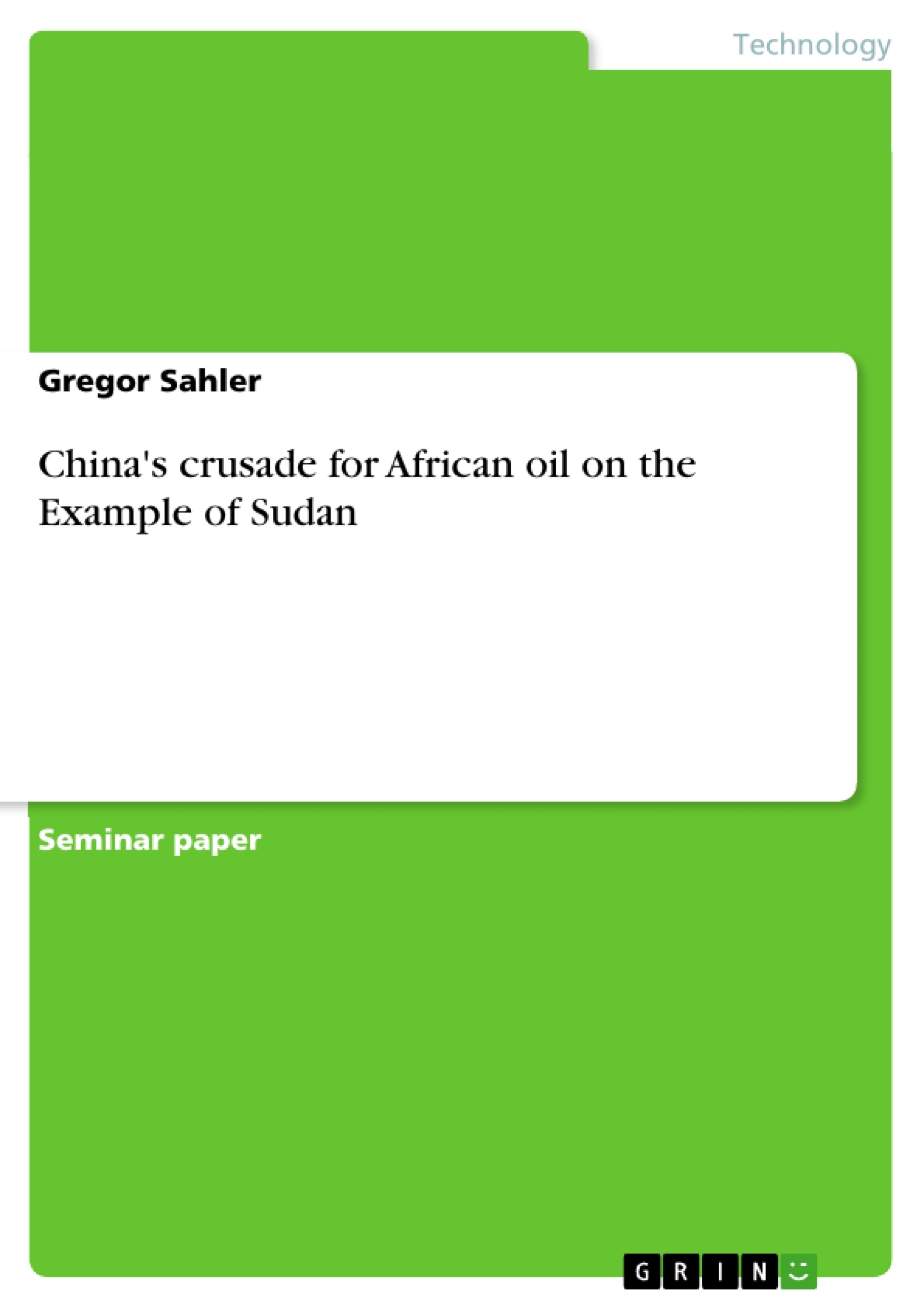This paper illustrates China’s oil-related activities on the African continent. To provide a clearer picture how the People’s Republic proceeds in securing African oil, I decided to illustrate China’s oil policy in Africa on one specific example. Therefore, I put Sudan in the center of my analysis. Sudan is one of China’s most important oil providers; up to 80 percent of Sudan’s daily oil produce goes to China.1 Nevertheless, political instability, humanitarian crises, and revolting tribes account for a difficult investment environment.
Inhaltsverzeichnis (Table of Contents)
- Introduction
- Facts & Figures about Sino-African Oil Relations
- The Institutional Framework of the Chinese Oil Industry
- Statistical Evidence for China's Foreign Oil Needs
- Trends in the African Oil Industry
- China & Sudan: A Partnership of Convenience
- A Historical Overview of China's Ties to Africa and the Sudan
- China's Modus Operandi in Securing Sudanese Oil
- China's Justification for its Sudan Policy
- China's Future Oil Strategy in Sudan
- Threats for China's Oil Strategy
- The Two States Scenario
- Conclusion
Zielsetzung und Themenschwerpunkte (Objectives and Key Themes)
This paper examines China's oil-related activities on the African continent, specifically focusing on the example of Sudan to illustrate China's oil policy in Africa. The paper aims to provide a comprehensive understanding of China's oil strategy, including its historical engagement with Africa and Sudan, its methods for securing Sudanese oil, and the justifications for its policy. Additionally, the paper explores potential threats and opportunities for China's future oil strategy in Sudan.
- China's increasing dependence on foreign oil resources
- The role of state-owned oil companies in China's global energy strategy
- China's strategic relationship with Sudan and its oil reserves
- The challenges and opportunities presented by Sudan's political instability and potential secession
- The implications of China's oil strategy for African countries and the global energy market
Zusammenfassung der Kapitel (Chapter Summaries)
- Introduction: This chapter outlines the context of China's growing dependence on foreign oil resources and its pursuit of securing oil from Africa, particularly Sudan. The chapter highlights Sudan's significance as a major oil supplier to China and the challenges posed by the country's political and economic instability.
- Facts & Figures about Sino-African Oil Relations: This chapter presents statistical evidence for China's rising oil consumption and its need to secure foreign resources. It discusses the institutional framework of the Chinese oil industry, including the role of state-owned companies such as CNPC, Sinopec, and CNOOC in China's global energy strategy.
- China & Sudan: A Partnership of Convenience: This chapter delves into the historical and contemporary relationship between China and Sudan, emphasizing the strategic importance of Sudan's oil reserves for China. The chapter examines China's approach to securing Sudanese oil and analyzes the justification for its engagement with Sudan, despite the country's controversial human rights record.
- China's Future Oil Strategy in Sudan: This chapter explores the potential threats and opportunities for China's oil strategy in Sudan, particularly in the context of the possibility of Southern Sudan seceding from Khartoum. The chapter discusses the implications of this scenario for China's oil interests and the wider geopolitical landscape.
Schlüsselwörter (Keywords)
This preview focuses on the key themes of Sino-African oil relations, China's oil strategy, Sudan's oil reserves, state-owned oil companies, energy security, geopolitical implications, and the challenges posed by political instability and potential secession. The analysis draws on statistical data, historical context, and insights into China's foreign policy objectives.
- Arbeit zitieren
- M.A. Gregor Sahler (Autor:in), 2010, China's crusade for African oil on the Example of Sudan, München, GRIN Verlag, https://www.grin.com/document/181809



